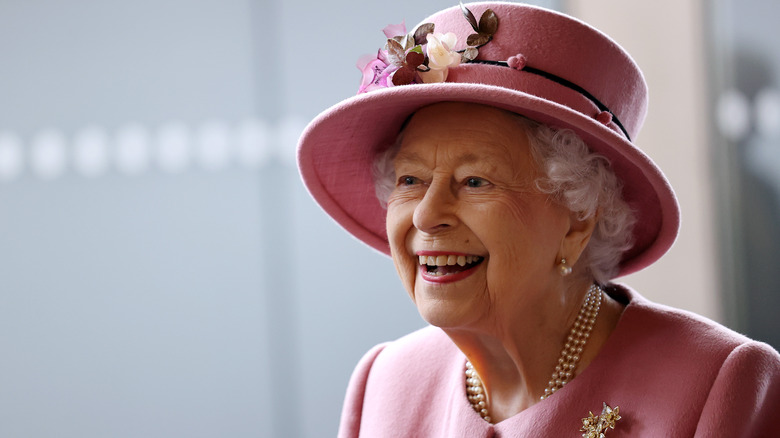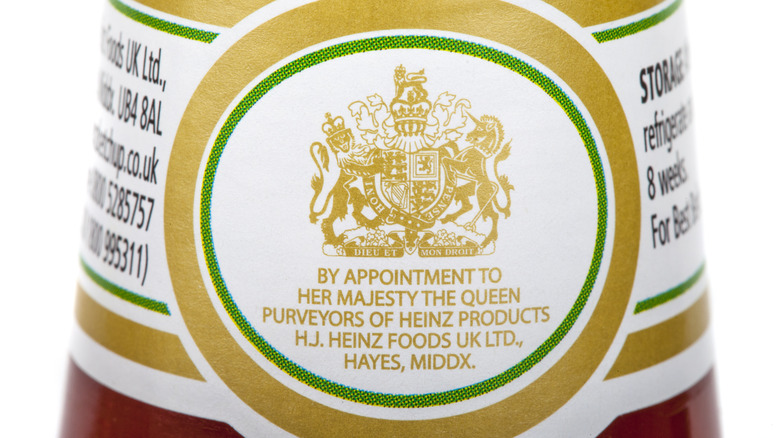How Royal Warrant Food Brands Are Affected By The Queen's Death
With the death of Queen Elizabeth II on September 8, not only has the U.K. been thrown into a state of mourning, but for many businesses, the death of the longest reigning monarch in British history could also mean the loss of a prestigious honor: A Royal Warrant.
According to the Royal Family's website, a Royal Warrant of Appointment is a recognition given "to people or companies who regularly supply goods or services" for the Royal Family. The reigning monarch can grant Royal Warrants and can designate other members of the Royal Family who are entitled to grant them. Prior to her death, Queen Elizabeth II and the Prince of Wales (now King Charles III) could grant warrants. Additionally, the Queen Mother and Prince Philip, Duke of Edinburgh were also able to grant these warrants before their deaths. It is likely King Charles will grant the power to Prince William and Queen Consort Camilla in the coming months (per The Cotswold Journal). In recognition of this honor, the grantee is allowed to display the royal Coat of Arms on their marketing and products, along with an explanation of who granted the warrant and the nature of the goods or services provided which earned the warrant.
Now that Queen Elizabeth has died, the Royal Warrants she granted are automatically voided. According to the Royal Warrant Holders Association, that includes 620 companies from 18 business sectors including food and beverages; building and maintenance; clothing and accessories; and even cleaning products.
Voided warrants
So what does a voided warrant mean for grantees? According to The Grocer, 100 food and drink companies currently hold Royal Warrants from Queen Elizabeth, including small businesses and global corporations like Coca-Cola and Heinz. These brands now have two years to discontinue their use of the Coat of Arms, though they — along with 34 companies still holding warrants from Prince Philip (via Royal Warrant Holders Association) — will be able to apply for a new warrant from King Charles.
Applying for new warrants is not an uncommon process. The Grocer notes that warrants are only valid for five years, at which point the company must request a renewal. This process involves proving that the business regularly served the Royal Family for at least five of the previous seven years and that they meet certain environmental and sustainability standards. While on average about 30 new Royal Warrants are granted annually, about the same number are not renewed, at which point they are given the same two years to adjust their marketing.
While this process will likely cause a bureaucratic headache for some businesses, there is one exception to the reapplication rule. According to The Cotswold Journal, warrants granted by King Charles while he was serving as Prince of Wales are still valid. This makes it so companies that received warrants from the now-King will not have their warrants voided.

